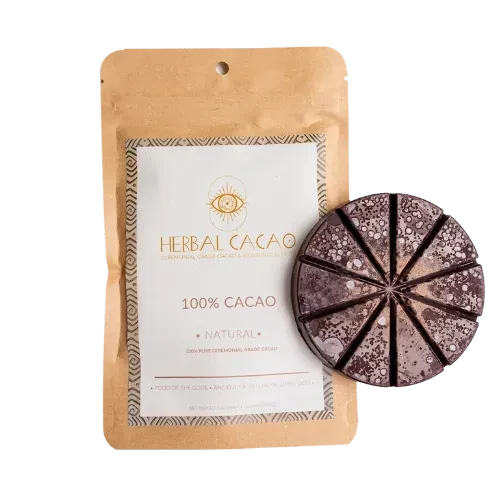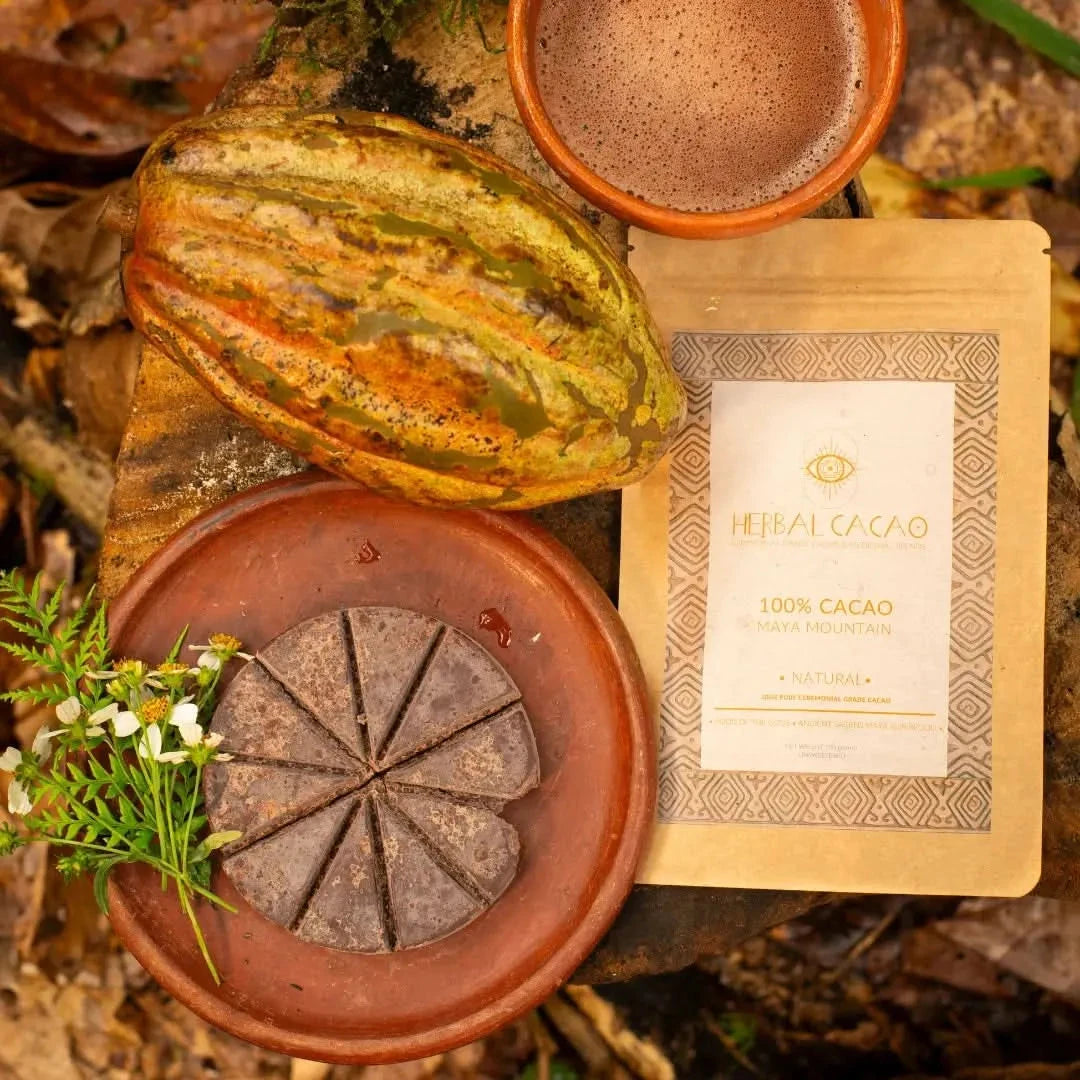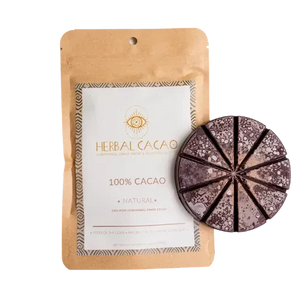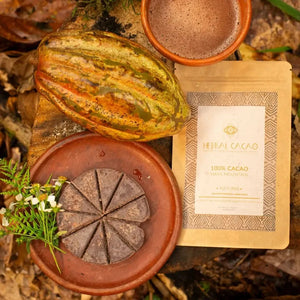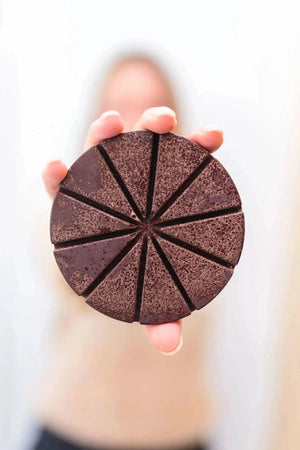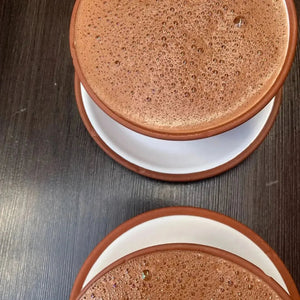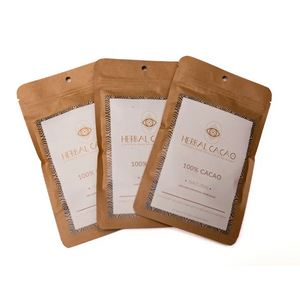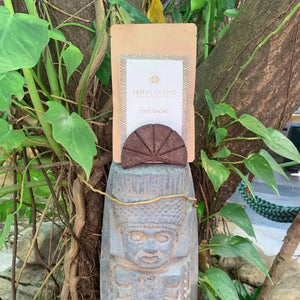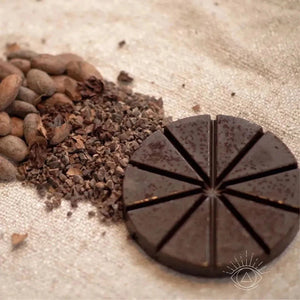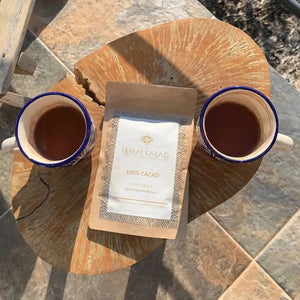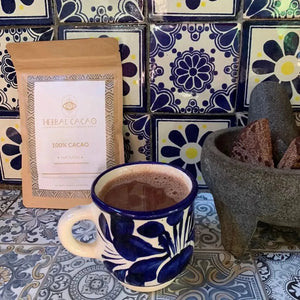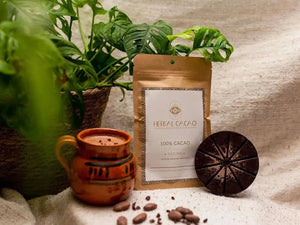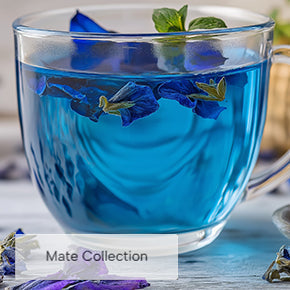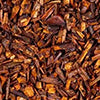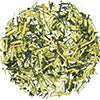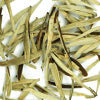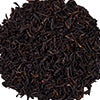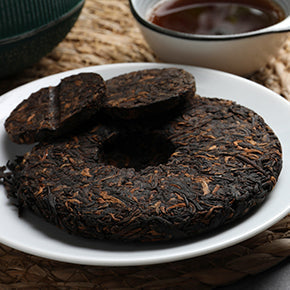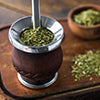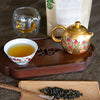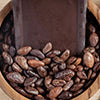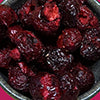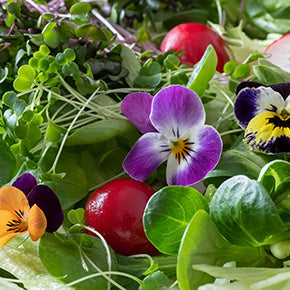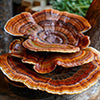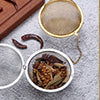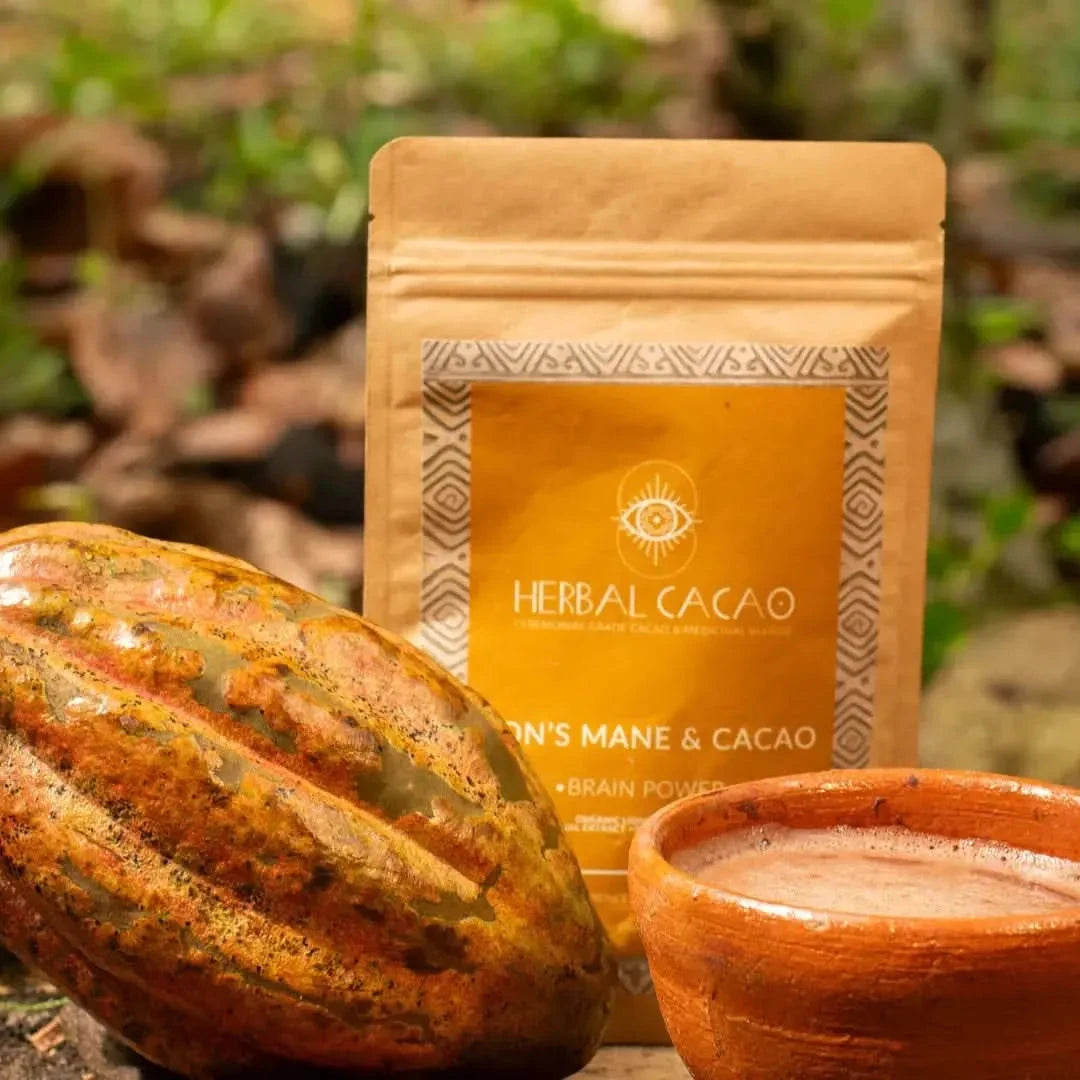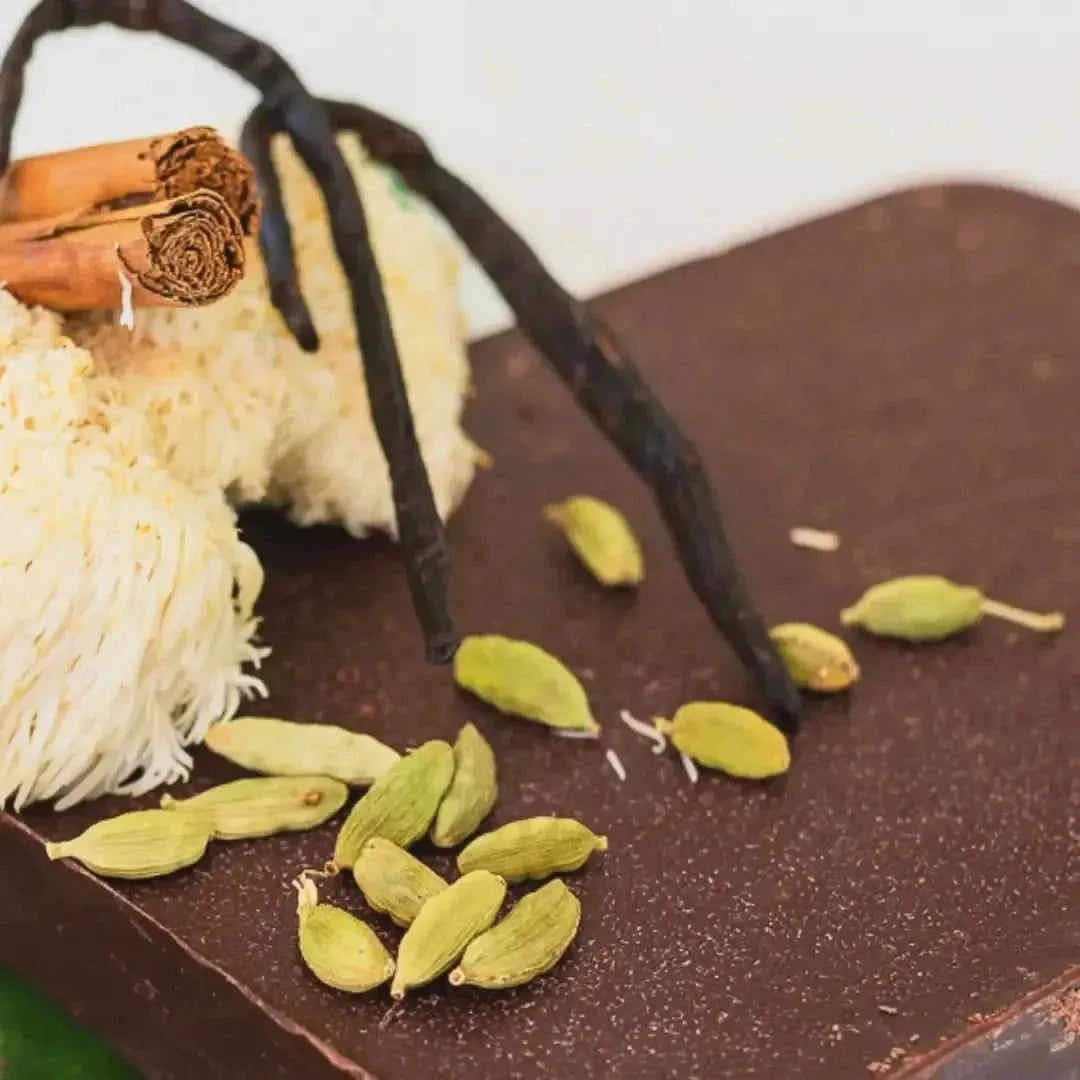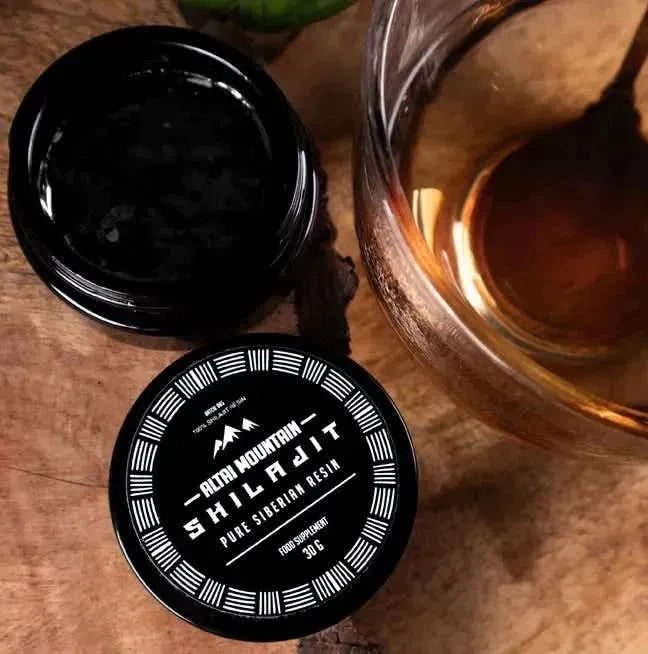Cacao Ceremonial - Maya Mountain Belize Traditional
Sacred Maya Mountain Cacao: Ancient Ceremonial Blend with Mucuna & Rose
Experience the profound depth of this ceremonial-grade cacao, mindfully sourced from Maya Mountain, Belize. This potent blend combines premium cacao grown through traditional polyculture farming with mood-enhancing Mucuna Pruriens and delicate organic rose petals. The cacao offers an intense, complex flavor profile with deep earthy notes and subtle floral undertones.
Each batch is carefully crafted to honor ancient Maya traditions while providing a powerful tool for modern ceremonial practice. The cacao's rich concentration of bioactive compounds, combined with Mucuna's natural L-DOPA content, creates an elevated experience perfect for meditation, spiritual work, or conscious connection.
This artisanal blend represents the pinnacle of ceremonial cacao preparation, offering both therapeutic benefits and a profound sensory journey. The synergy between high-grade cacao, mood-lifting Mucuna, and heart-opening rose petals provides a holistic experience that nourishes body, mind, and spirit.
Guarantee Safe Checkout
Sacred Preparation & Ceremonial Guidelines
Traditional Method: Blend 1-2 oz (28-57g) with 8 oz hot water (160°F/71°C). Whisk vigorously until frothy. For a richer experience, use plant-based milk.
Ceremonial Use: Best consumed in morning or early afternoon. Set sacred space before preparation. Can be enhanced with meditation, breathwork, or prayer.
Dosage: Begin with 1 oz and adjust based on sensitivity. Store in cool, dry place in airtight container.
Integration: Allow 15-20 minutes after consumption for effects to develop. Journal or reflect on your experience.
Sacred Ingredients: Traditional Maya Mountain Cacao Blend
Premium Ceremonial Cacao: Sourced from Maya Mountain, Belize, grown using traditional polyculture farming. Rich in alkaloids, flavonoids, and essential minerals. Known for its intense depth and complex flavor profile.
Mucuna Pruriens: Also known as velvet bean, this powerful adaptogen contains high levels of L-DOPA, a natural precursor to dopamine. Traditionally used for mood enhancement and neurological support.
Organic Rose Petals: Hand-selected for their heart-opening properties and subtle floral notes. Adds a delicate aromatic dimension while supporting emotional well-being.
Therapeutic Benefits & Sacred Properties
This ceremonial blend offers a comprehensive range of benefits that honor both traditional wisdom and modern understanding:
- Neurological Support: The L-DOPA in Mucuna Pruriens naturally increases dopamine levels, supporting mood regulation and cognitive function. Studies indicate potential neuroprotective properties beneficial for various neurological conditions.
- Heart & Emotional Wellness: Cacao's flavonoids support cardiovascular health while its theobromine content provides gentle, sustained energy. Rose petals contribute to emotional balance and heart-opening experiences.
- Spiritual Connection: The blend's synergistic combination creates an ideal foundation for meditation, ceremony, and conscious practices. Traditional use suggests enhanced spiritual awareness and deepened ancestral connection.
- Cognitive Enhancement: Natural compounds in cacao, including caffeine and theobromine, support mental clarity and focus without jittery side effects.
Maya Mountain Heritage & Sacred Traditions
In Maya culture, cacao holds profound spiritual significance as a sacred gift from the gods. Known locally as Cucu in the Q'eqchi Nation, cacao ceremonies remain integral to community life and spiritual practice.
Traditional Maya farming methods in Belize's Mountain region enhance soil biodiversity through polyculture techniques, resulting in superior nutrient profiles. When planting new cacao trees, farmers still perform ancient ceremonies seeking permission from spiritual forces for abundant harvests.
The Maya people have used ceremonial cacao for millennia as a tool for spiritual connection, community bonding, and healing. This blend honors these traditions while incorporating complementary sacred plants like Mucuna Pruriens, known in various indigenous practices for its consciousness-expanding properties.

